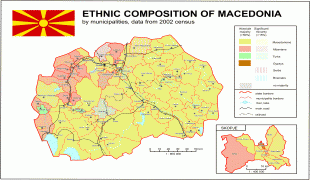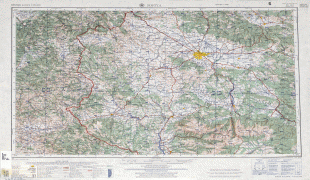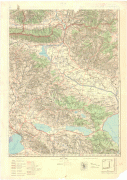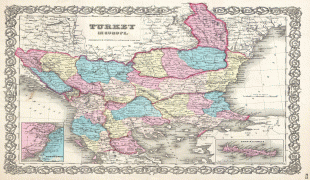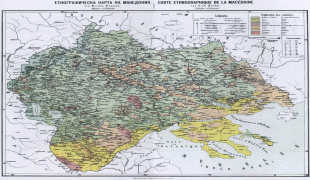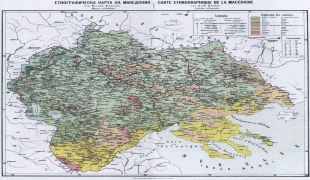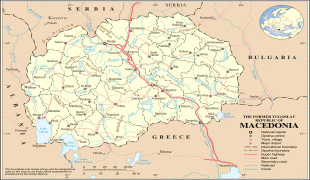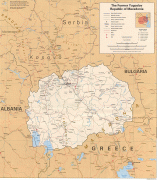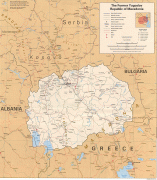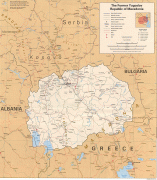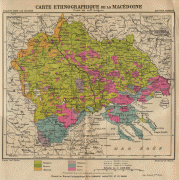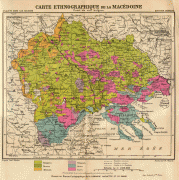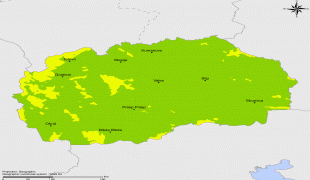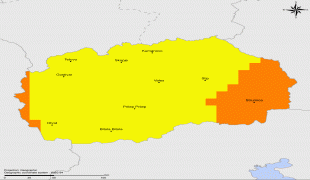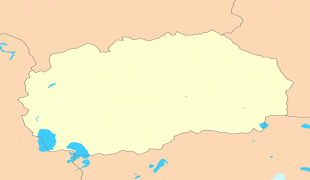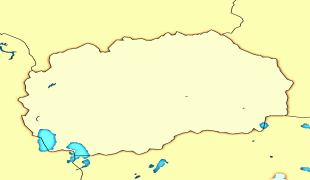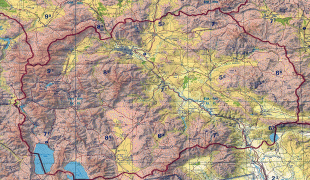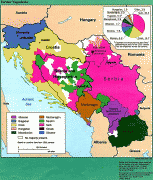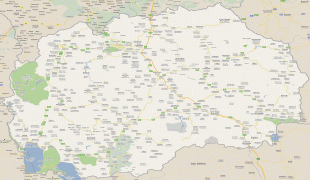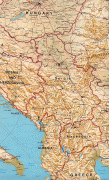Republic of Macedonia (North Macedonia)
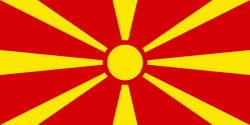 |
 |
The region's history begins with the kingdom of Paeonia, a mixed Thraco-Illyrian polity. In the late sixth century BC, the area was subjugated by the Persian Achaemenid Empire, then incorporated into the Kingdom of Macedonia in the fourth century BC. The Roman Republic conquered the region in the second century BC and made it part of the larger province of Macedonia. The area remained part of the Byzantine Empire, but was often raided and settled by Slavic tribes beginning in the sixth century of the Christian era. Following centuries of contention between the Bulgarian, Byzantine, and Serbian Empires, it was part of the Ottoman Empire from the mid-14th until the early 20th century, when, following the Balkan Wars of 1912 and 1913, the modern territory of North Macedonia came under Serbian rule.
During the First World War, the territory was ruled by Bulgaria, but after the end of the war it returned to Serbian rule as part of the newly formed Kingdom of Serbs, Croats and Slovenes. During the Second World War, it was again ruled by Bulgaria; and in 1945 it was established as a constituent state of communist Yugoslavia, which it remained until its peaceful secession in 1991. The country became a member of the United Nations in April 1993, but as a result of a dispute with Greece over the name "Macedonia", it was admitted under the provisional description "the former Yugoslav Republic of Macedonia" (abbreviated as "FYR Macedonia" or "FYROM"). In June 2018, Macedonia and Greece resolved the dispute with an agreement that the country should rename itself "Republic of North Macedonia". This renaming came into effect in February 2019.
A unitary parliamentary constitutional republic, North Macedonia is a member of the UN, NATO, the Council of Europe, the World Bank, OSCE, CEFTA, BSEC and the WTO. Since 2005, it has also been a candidate for joining the European Union. North Macedonia is an upper-middle-income country according to the World Bank's definitions and has undergone considerable economic reform since its independence in developing an open economy. It is a developing country, ranked 82nd on the Human Development Index; and provides social security, a universal health care system, and free primary and secondary education to its citizens.
The state's name derives from the Greek word (Makedonía), a kingdom (later, region) named after the ancient Macedonians. Their name, (Makedónes), ultimately derives from the ancient Greek adjective μακεδνός (makednós), meaning 'tall' or 'taper', which shares the same root as the adjective (makrós, 'long, tall, high') in ancient Greek. The name is believed to have originally meant either 'highlanders' or 'the tall ones', possibly descriptive of the people. According to linguist Robert S. P. Beekes, both terms are of pre-Greek substrate origin and cannot be explained in terms of Indo-European morphology. However, according to linguist Filip De Decker, Beekes's arguments are insufficient.
The name Macedonia was largely forgotten as a geographical denomination through the Byzantine and Ottoman era but was revived by Bulgarian and Greek nationalist movements from the early 19th century. It was revived only in middle of the century, with the rise of nationalism in the Ottoman Empire. In the early 20th century the region was already a national cause, contested among Bulgarian, Greek and Serbian nationalists. During the interwar period the use of the name Macedonia was prohibited in the Kingdom of Yugoslavia, due to the implemented policy of Serbianisation of the local Slavic-speakers. The name Macedonia was adopted officially for the first time at the end of the Second World War by the new Socialist Republic of Macedonia, which became one of the six constituent countries of the Socialist Federal Republic of Yugoslavia. After the fall of Communism, with the beginning of the breakup of Yugoslavia, this federal entity declared independence and changed its official name to the Republic of Macedonia in 1991. Prior to June 2018, the use of the name Macedonia was disputed between Greece and the then-Republic of Macedonia.
The Prespa agreement of June 2018 saw the country change its name to the Republic of North Macedonia eight months later. A non-binding national referendum on the matter passed with 90% approval but did not reach the required 50% turnout amidst a boycott, leaving the final decision with parliament to ratify the result. Parliament approved of the name change on 19 October, reaching the required two-thirds majority needed to enact constitutional changes. The vote to amend the constitution and change the name of the country passed on 11 January 2019 in favour of the amendment. The amendment entered into force on 12 February, following the ratification of the Prespa agreement and the Protocol on the Accession of North Macedonia to NATO by the Greek Parliament. Despite the renaming, the country is unofficially referred to as 'Macedonia' by most of its citizens and most of the local media outlets.
Currency / Language
| ISO | Currency | Symbol | Significant figures |
|---|---|---|---|
| MKD | Macedonian denar | ден | 2 |
| ISO | Language |
|---|---|
| SQ | Albanian language |
| MK | Macedonian language |
| SR | Serbian language |
| TR | Turkish language |






